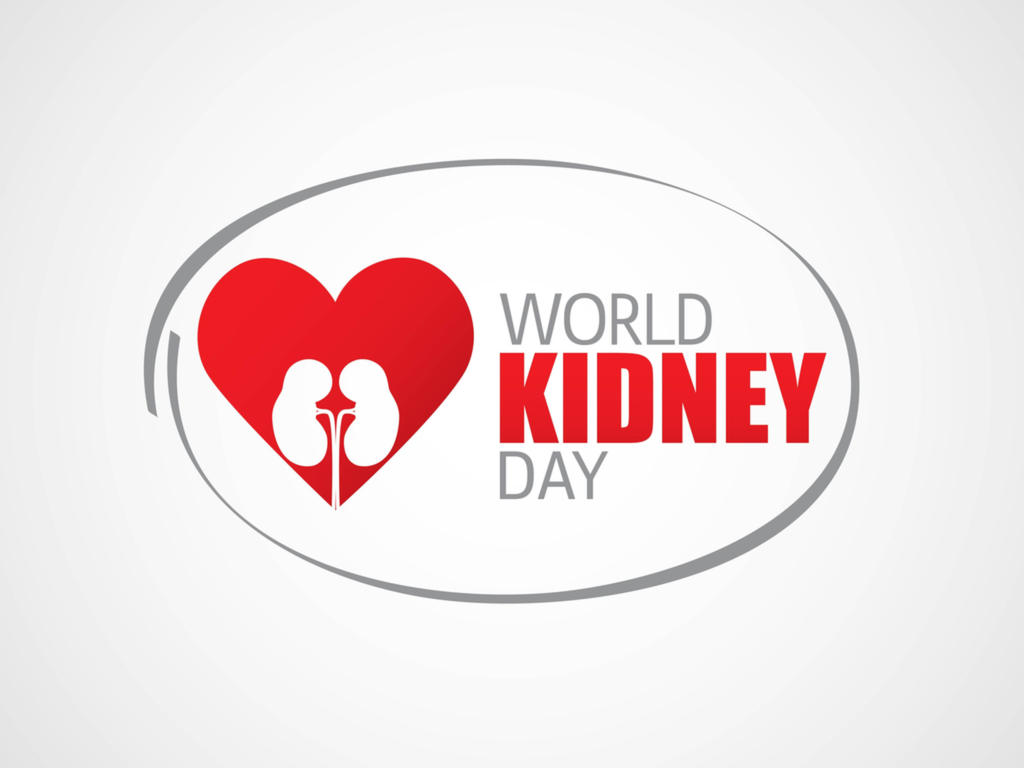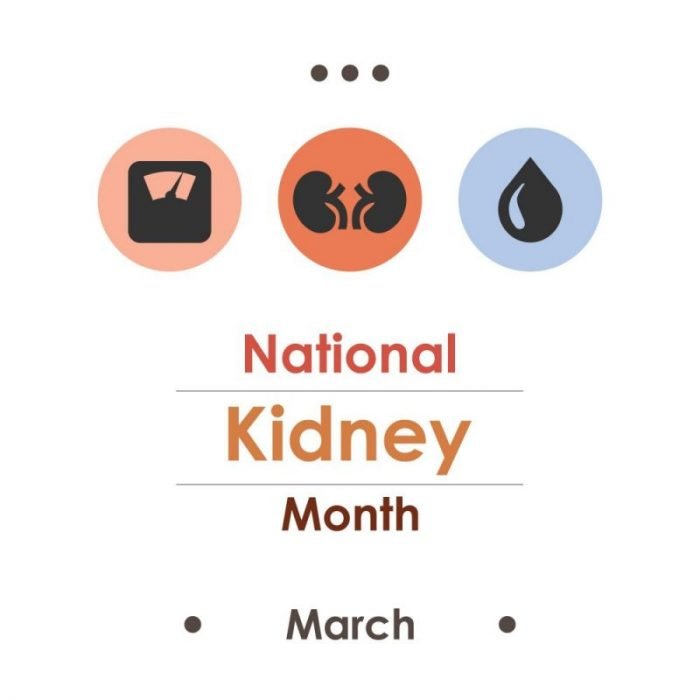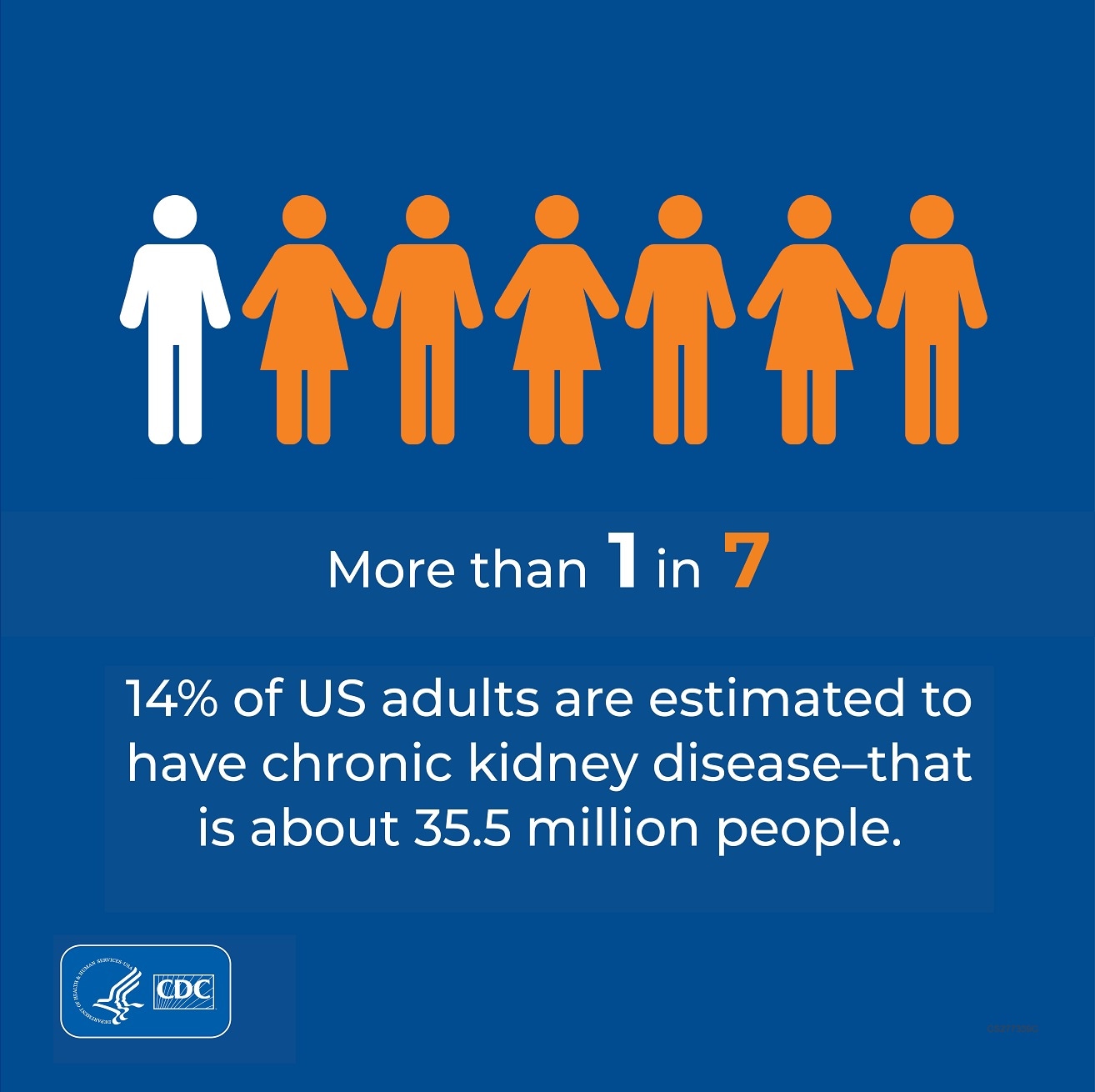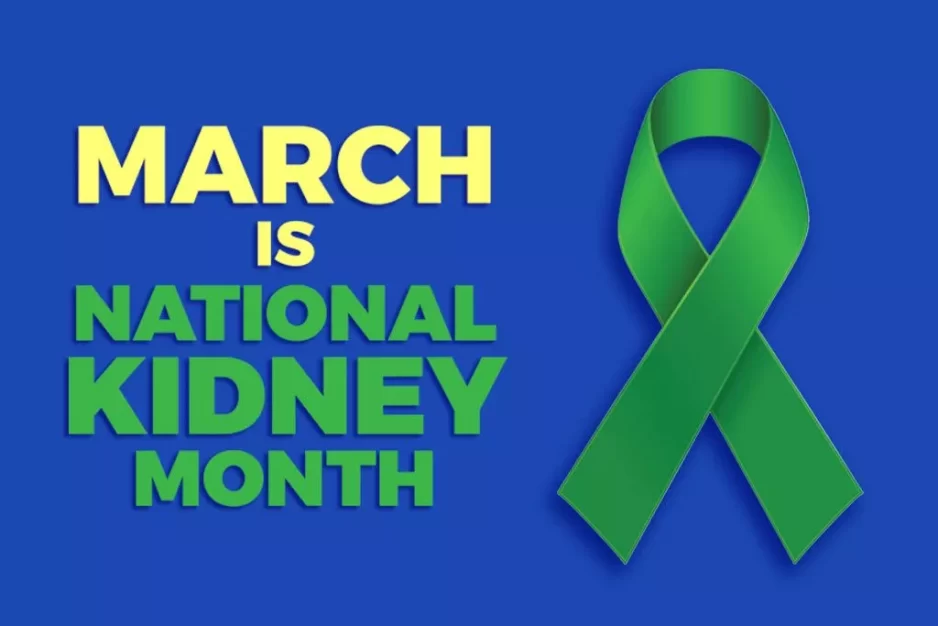Did you know that March is National Kidney Awareness Month? For many of us, we take our kidney health for granted. But did you also know that chronic kidney disease affects one in seven adults in the United States? In this blog post, we’ll explore what kidney disease is, how to prevent it, and how to promote kidney health. Let’s get started!

1. National Kidney Month is observed every March.
March is a significant month for raising awareness about kidney health. One of the reasons is National Kidney Month, which is observed every year in March. The month-long campaign aims to increase public awareness of kidney disease and its risk factors. This provides the perfect opportunity for individuals to learn more about how to maintain healthy kidneys and reduce their chances of developing kidney disease. By contributing to kidney health initiatives and supporting research, people can make a difference in improving the quality of life for others. It is important to stay on top of regular checkups to ensure early detection and timely treatment of any kidney-related issues. Everyone, regardless of age or background, should take action to support kidney health initiatives and promote the importance of maintaining healthy kidneys.

2. World Kidney Day is celebrated annually on March 9.
March 9 marks the annual celebration of World Kidney Day, a global initiative that aims to raise awareness about the importance of kidney health. This day focuses on increasing awareness about the prevention and treatment of kidney diseases, which affect millions of people worldwide. As part of National Kidney Month, World Kidney Day aims to highlight the significance of kidney health and encourage people to take action to support research initiatives. By promoting healthy habits, regular checkups, and early detection, this day inspires individuals, communities, and organizations to prioritize kidney health and make a positive impact on the lives of those affected by kidney disease.

3. The month aims to raise awareness about kidney health.
In an effort to promote kidney health and raise awareness about the risk factors and prevention of kidney disease, National Kidney Month is observed every March. The month-long event aims to educate people about the importance of their kidneys and the many ways in which they can optimize their kidney health. Through various initiatives and campaigns, the month encourages individuals to take proactive steps towards maintaining their kidney health, such as adopting healthy lifestyle habits, getting regular checkups, and supporting kidney disease research. By bringing attention to this “silent disease” and emphasizing the need for better kidney health practices, we can make a difference in the lives of millions affected by kidney disease worldwide.

4. It encourages people to support kidney disease research.
In addition to raising awareness about kidney health, National Kidney Month also encourages people to support initiatives that advance kidney disease research. By providing funding to research institutions, individuals can help to drive forward a better understanding of kidney disease and develop more effective treatments. Supporting kidney research can make a significant difference, as it allows experts to gain valuable insights into the underlying causes and progression of kidney-related conditions, and ultimately improve outcomes for those affected. In this way, individuals can make a meaningful contribution to the overall effort to combat chronic kidney disease and promote better kidney health for all.

5. Chronic kidney disease is a major health concern worldwide.
Chronic kidney disease is a serious public health issue that affects millions of people worldwide. As stated earlier, it is often referred to as a “silent disease” because symptoms are usually not noticeable until it has progressed to later stages. This is why it’s essential to spread awareness, support research, and encourage early detection and treatment. It is also important to note that high blood pressure is a leading cause of kidney disease, which underscores the need for lifestyle changes such as eating a healthy diet and exercising regularly. Anyone can be affected by kidney disease, regardless of age or background, making it all the more critical to prioritize kidney health. Supporting initiatives aimed at improving kidney health can make a significant difference in reducing the impact of this disease on individuals and communities worldwide.

6. High blood pressure is a leading cause of kidney disease.
As highlighted earlier in this blog, chronic kidney disease is a major health concern worldwide, with diabetes being the leading cause. However, high blood pressure is also a significant contributing factor that cannot be ignored. In fact, it is the second leading cause of kidney failure in the United States after diabetes. Increased blood pressure can cause damage to the kidney vasculature, leading to chronic kidney disease over time. This is why it is crucial to manage hypertension to prevent the development of kidney problems. Lifestyle changes, such as maintaining a healthy diet and engaging in regular exercise, can help prevent both high blood pressure and kidney disease. Early detection and treatment are also essential to managing these conditions effectively. By supporting kidney health initiatives, individuals can contribute to raising awareness about the importance of maintaining kidney health and supporting research to develop effective treatments for kidney disease.

7. Lifestyle changes can help prevent kidney disease.
The good news is that making simple lifestyle changes can help avoid kidney problems and keep your kidneys healthy. National Kidney Month aims to raise awareness about kidney health and encourages supporting kidney disease research. It’s important to prevent or manage health conditions that cause kidney damage, such as diabetes and high blood pressure with lifestyle changes, including diet, exercise, and medications. Reducing foods high in saturated fats and cholesterol can help. Eating more foods rich in vitamins and antioxidants can also promote kidney health. Regular exercise can lower the risk of kidney disease, reduce blood pressure, and boost cardiovascular health. Achieving and maintaining a healthy weight can also lower the risk of kidney problems. By making these lifestyle changes and regularly checking for early detection and treatment, kidney disease can be prevented. Supporting kidney health initiatives can make a difference in the fight against chronic kidney disease, affecting people of all ages and backgrounds worldwide.

8. Regular checkups are important for early detection and treatment.
Regular checkups are essential for maintaining kidney health, as they help to detect potential issues early on before they become severe. It is especially important for seniors to attend regular kidney function screenings so that any signs of kidney disease can be identified promptly, and the necessary steps can be taken to reverse its effects. Moreover, checkups with healthcare providers can detect high blood pressure, which is a major cause of kidney disease, and help manage it appropriately. This is important as high blood pressure can cause severe kidney damage if left untreated. Thus, taking the time to schedule and attend routine appointments is an excellent way to safeguard kidney health and ensure that any potential problems are caught and treated early. Through supporting kidney health initiatives and prioritizing regular checkups, people can work together to make a difference in promoting good kidney health for all.

9. Kidney disease can affect people of all ages and backgrounds.
Kidney disease doesn’t discriminate based on age or background. It is important to note that anyone can develop kidney disease, regardless of their demographics. This means that children, teenagers, adults, and seniors are all at risk of developing kidney problems. Additionally, kidney disease can affect people from all races, ethnicities, and nationalities. Understanding the risk factors, such as diabetes and high blood pressure, can help individuals take preventative measures to protect their kidney health. Regular checkups are also crucial for early detection and treatment of kidney disease in individuals of all ages and backgrounds. By raising awareness and supporting kidney health initiatives, we can work towards preventing and controlling kidney disease for everyone.

10. Supporting kidney health initiatives can make a difference.
By supporting kidney health initiatives, individuals can make a significant impact in the fight against chronic kidney disease. Participation in fundraising events or donating money to kidney disease research organizations can help to accelerate medical advancements and improve treatments for those living with the disease. Additionally, spreading awareness about the importance of kidney health, and the risk factors associated with chronic kidney disease, can help to prevent future cases from occurring. By prioritizing preventative measures, such as maintaining a healthy diet and exercise routine, individuals can work towards reducing their risk of developing kidney disease. Through collaboration and dedication, the kidney community can work towards better outcomes for those affected by chronic kidney disease.

